Industry-specific events have become a cornerstone of professional development, business growth, and community building across various sectors. These targeted gatherings bring together individuals with shared interests, expertise, and professional goals within a specific industry. From healthcare conferences brimming with the latest medical advancements to tech expos showcasing cutting-edge innovations, industry-specific events offer a unique platform for learning, collaboration, and fostering connections.
However, planning a successful industry-specific event presents unique challenges compared to more general events. Understanding the specific needs, interests, and current trends within the chosen industry is crucial for crafting an event that resonates with your target audience. This guide delves into the key considerations and best practices for planning industry-specific events, from healthcare conferences and tech expos to fashion shows and music festivals. By following these steps, you can create a compelling and engaging event experience tailored to the specific industry you’re catering to, fostering valuable learning, meaningful connections, and a thriving industry community.
Understanding the Industry Landscape
Before diving headfirst into the exciting world of planning your industry-specific event, conducting thorough research on the specific industry you’re targeting is paramount. This initial investment in research lays the foundation for a successful event, ensuring it aligns with the current trends, addresses the needs of your target audience, and stands out from any competitor events that may exist within the industry.
Imagine you’re planning a healthcare conference. Thorough industry research would involve delving into the latest medical advancements, upcoming regulatory changes, and the most pressing challenges faced by healthcare professionals today. Understanding these trends allows you to tailor your event content accordingly, perhaps by featuring presentations on groundbreaking new medical technologies or sessions focused on navigating the latest healthcare reform policies.
The benefits of industry research extend far beyond simply identifying relevant content themes. Knowing your target audience within the chosen industry is equally important. Are you catering to experienced medical professionals seeking continuing education credits, or is your audience primarily young researchers at the forefront of medical innovation? Understanding the demographics, professional backgrounds, and specific interests of your target audience is crucial for crafting an event experience that truly resonates with them.
Industry research also involves analyzing any existing competitor events within your chosen space. What topics do they cover? What format do they follow? What are their strengths and weaknesses? By studying competitor events, you can gain valuable insights and ensure your own event offers a unique and compelling value proposition to attract attendees within the industry.
In conclusion, dedicating time to understanding the industry landscape – its trends, target audience, and competitor events – is an essential first step in planning a successful industry-specific event. This research equips you with the knowledge and insights necessary to create an event that is not only relevant and engaging but also stands out within the chosen industry.
Developing a Compelling Event Theme
Crafting a clear and captivating event theme is a vital step in planning any successful gathering. However, for industry-specific events, the theme takes on an even greater significance. An effective theme acts as a beacon, attracting attendees within your chosen industry by immediately signaling the event’s relevance and value proposition.
Here’s the key: Your theme should be specific enough to resonate with your target audience within the industry, yet broad enough to encompass a variety of engaging content and sessions.
Let’s explore some creative brainstorming techniques for developing compelling event themes specific to different industries:
Healthcare
Industry trends and current events can provide a rich source of inspiration. For example, if advancements in gene editing are a hot topic within the healthcare industry, consider a theme like “Unlocking the Future: The Power of Gene Editing in Modern Medicine.” This theme is specific enough to grab the attention of healthcare professionals interested in this burgeoning field, while still offering room for diverse presentations and discussions related to this revolutionary technology.
Technology
Technology evolves at a rapid pace, and staying ahead of the curve is crucial for those within the industry. A theme like “TechX: Redefining the Future Through Innovation” is broad enough to encompass a wide range of presentations on cutting-edge advancements in artificial intelligence, virtual reality, or cybersecurity, while still conveying a sense of excitement and forward-thinking innovation that will resonate with tech professionals.
Fashion
The fashion industry thrives on creativity and staying ahead of trends. A theme like “The Fabric of Fashion: Sustainability, Technology, and the Future of Style” captures the essence of this ever-evolving industry. This theme allows for presentations on sustainable fashion practices, the integration of technology in clothing design, and upcoming trends that will shape the future of fashion, all while remaining relevant to a fashion-forward audience.
Music
Music festivals often cater to specific genres or musical movements. A theme like “From Vinyl to Virtual: Celebrating the Evolution of Electronic Music” instantly communicates the event’s focus, attracting fans and industry professionals passionate about electronic music. This theme allows for live performances, historical retrospectives, and discussions on the future of electronic music production, all tailored to a specific audience within the music industry.
Remember, your event theme should be concise, memorable, and effectively communicate the value proposition to your target audience within the chosen industry. By dedicating time to brainstorming creative and relevant themes, you can set the stage for a truly successful industry-specific event.
Crafting Targeted Content and Speakers
The content and speakers you select for your industry-specific event play a central role in its success. Attendees come to these events seeking knowledge, inspiration, and the opportunity to connect with industry leaders. Therefore, ensuring your content and speaker selection aligns directly with the interests and needs of your target audience within the chosen industry is crucial.
Content is King (or Queen) in the Industry-Specific Event World
The content you present at your event should be informative, engaging, and directly relevant to the current trends and challenges faced by professionals within your chosen industry. Imagine you’re planning a conference for marketing professionals within the tech industry. Filling your agenda with generic marketing presentations wouldn’t be very effective. Instead, consider incorporating sessions focused on the latest digital marketing strategies specifically tailored to the tech industry, such as leveraging artificial intelligence for targeted advertising or creating engaging content for social media platforms used by tech-savvy audiences.
Format Variety is Key to Keeping Your Audience Engaged
Beyond the content itself, consider the format of your presentations. While traditional lectures have their place, incorporating a variety of formats can keep your audience engaged throughout the event. Interactive workshops, panel discussions with industry experts, or even live demonstrations of new technologies can all be effective ways to present informative content in a way that fosters audience participation and deeper learning.
Selecting Speakers Who Captivate and Inspire
The speakers you invite set the tone for your event and play a significant role in attracting attendees. Industry leaders, renowned researchers, and innovative entrepreneurs are all potential speaker candidates, depending on your specific industry and event goals. Prioritize speakers who possess not only deep expertise within the industry but also the ability to communicate complex information in a clear, engaging, and inspiring manner.
Finding the Perfect Balance: Experience and Fresh Perspectives
While established industry leaders bring a wealth of experience and knowledge to the table, consider incorporating fresh perspectives from rising stars or innovative startups within the chosen industry. This balance between experience and new voices can ensure your event offers valuable insights for attendees at all stages of their careers within the industry.
By carefully crafting targeted content, selecting engaging formats, and inviting captivating speakers who resonate with your audience, you can ensure your industry-specific event delivers a rich learning experience that fosters knowledge sharing, inspiration, and professional growth for all attendees.
Creating an Engaging Event Format
The format of your industry-specific event plays a crucial role in attendee engagement and overall experience. While the content and speakers are undoubtedly important, the format is the framework upon which you build a dynamic and interactive gathering. The chosen format should not only align with your event goals but also cater to the specific needs and preferences of your target audience within the chosen industry.
Tailoring the Format to Industry Specificity
Imagine planning a healthcare conference. A traditional conference format with back-to-back lectures might not be the most engaging approach. However, incorporating interactive workshops where attendees can practice new medical techniques or case study presentations followed by facilitated discussions would likely be more effective.
Here are some popular event formats you can consider, keeping in mind the specific needs of your industry:
- Conferences: A classic format well-suited for delivering a variety of presentations, panel discussions, and keynote speeches from industry leaders. This format is ideal for industries where knowledge dissemination and staying updated on current trends is crucial (e.g., healthcare, technology).
- Workshops: Offer a more hands-on learning experience, allowing attendees to actively participate in exercises, skill development sessions, and practical demonstrations. This format is ideal for industries where practical skills are essential (e.g., fashion design workshops, music production workshops).
- Trade Shows: Provide a platform for businesses within the industry to showcase their products and services to potential customers and partners. Trade shows are well-suited for industries with a strong focus on product innovation and business-to-business interaction (e.g., tech expos, fashion trade shows).
- Product Launches: Create a buzz and generate excitement around a new product or service launch within your industry. This format allows for product demonstrations, industry expert testimonials, and networking opportunities for potential customers and partners.
Beyond the Standard Format: Exploring Creative Options
Don’t be afraid to think outside the box! Consider incorporating elements of gamification, like point systems for attending sessions or participating in discussions, to boost attendee engagement. For tech industry events, a “hackathon” competition could be a highlight, allowing attendees to collaborate and develop innovative solutions to industry challenges.
Remember, the ideal format for your industry-specific event is the one that best facilitates knowledge sharing, networking, and fosters a sense of community among attendees within your chosen industry.
Leveraging Technology for a Seamless Experience
In today’s tech-driven world, event technology platforms have become an indispensable tool for planning and executing successful events. These platforms offer a multitude of features and functionalities that can streamline the planning process, enhance attendee management, and ultimately contribute to a seamless and enjoyable experience for everyone involved in your industry-specific event.
Simplifying Event Planning and Management
Event technology platforms can be a game-changer when it comes to streamlining the often-complex process of planning and managing your industry-specific event. Features like online registration portals allow attendees to easily sign up for the event, while built-in communication tools enable you to send targeted updates and important information directly to registered attendees.
Imagine managing a large fashion trade show. An event technology platform can help you manage exhibitor booths, track sponsorship fulfillment, and even create an interactive event app that allows attendees to browse exhibitor information, schedule meetings, and navigate the trade show floor – all from their smartphones.
Enhancing Attendee Engagement
Event technology platforms go beyond simplifying logistics; they can also significantly enhance attendee engagement. Many platforms offer features like live polling and Q&A sessions, allowing attendees to actively participate in presentations and interact with speakers in real-time. This fosters a more dynamic and interactive learning environment, keeping attendees engaged throughout the event.
For a music festival, an event technology platform could be used to create a customized festival schedule for each attendee based on their favorite artists and genres. Additionally, the platform could integrate with social media, allowing attendees to share their experiences and connect with fellow festival-goers online.
Streamlining Networking Opportunities
Networking is a crucial aspect of many industry-specific events. Event technology platforms can facilitate this process by providing features like online attendee directories and built-in messaging tools. These features allow attendees to connect with each other before, during, and after the event, fostering valuable professional connections within the chosen industry.
For a healthcare conference, an event technology platform could connect attendees with similar specialties or research interests, facilitating networking opportunities and fostering collaboration among healthcare professionals.
By leveraging the power of event technology platforms, you can streamline the planning process, enhance attendee engagement, and ultimately create a seamless and enriching experience for everyone involved in your industry-specific event.
Optimizing Event Marketing and Promotion
The success of any event hinges on its ability to attract a targeted audience. This is especially true for industry-specific events, where reaching the right professionals within your chosen sector is paramount. Developing a strategic and targeted marketing and promotional plan is essential to ensure your industry-specific event reaches the right people and generates excitement within the industry.
Understanding Your Audience: The Foundation for Effective Marketing
Before diving into specific marketing tactics, it’s crucial to gain a deep understanding of your target audience within the chosen industry. Consider their demographics, professional backgrounds, and the specific media channels they frequent. Are you targeting experienced executives who rely on industry publications for news, or are you aiming to reach young professionals who are active on social media platforms? Knowing your audience allows you to tailor your marketing message and select the most effective channels for reaching them.
Leveraging Industry Publications and Trade Associations
Industry publications and trade associations are powerful allies when promoting your industry-specific event. Many publications offer advertising opportunities or editorial calendars where you can submit press releases or event listings. Trade associations often promote events relevant to their members, providing valuable exposure to a targeted audience within your chosen industry.
Social Media Marketing: Tailoring Your Message to Different Platforms
Social media marketing offers a dynamic and cost-effective way to reach a vast audience within your industry. However, tailoring your message and content to each platform is crucial. Professional networking platforms like LinkedIn are ideal for sharing event details, speaker announcements, and industry-specific thought leadership content. For a more visually-driven event like a fashion show or music festival, platforms like Instagram or Pinterest can be leveraged to showcase captivating visuals and generate excitement.
Harnessing the Power of Influencer Marketing
Partnering with industry influencers can significantly amplify your event’s reach and credibility. Identify influencers within your chosen industry who possess a strong online presence and resonate with your target audience. Collaborate with them to create engaging content about your event, such as blog posts, social media promotions, or even live streams during the event itself.
Optimizing Your Website and Online Presence
Your event website serves as a central hub for all event information and promotion. Ensure your website is user-friendly, mobile-optimized, and clearly conveys the value proposition of your industry-specific event. Incorporate clear calls to action, such as registration buttons, and optimize your website content with relevant keywords to improve search engine ranking and organic discovery within the industry.
By developing a targeted marketing and promotional strategy that leverages industry publications, social media platforms, influencer marketing, and a strong online presence, you can effectively reach the right audience and generate excitement for your industry-specific event, ensuring a successful turnout of engaged professionals within your chosen sector.
Creating Networking Opportunities
Industry-specific events aren’t just about acquiring knowledge; they’re also prime opportunities for fostering valuable professional connections. Whether your event caters to healthcare professionals eager to exchange best practices or music industry executives seeking potential collaborators, creating dedicated networking opportunities is crucial for maximizing the event’s impact for attendees.
Here are some creative strategies to consider when facilitating networking at your industry-specific event:
Structured Networking Events:
- Speed Networking Sessions: These fast-paced sessions pair attendees for brief, focused conversations. Consider providing prompts or discussion topics relevant to the industry to spark meaningful interactions. This format is ideal for large events where attendees might not have time for extensive individual networking.
- Meetup Groups by Area of Expertise: Create designated breakout sessions or areas within your event space where attendees with similar specialties or interests can connect. This allows for more in-depth discussions and fosters collaboration among like-minded professionals within the industry.
Informal Networking Activities:
- Icebreaker Activities: These lighthearted activities help break the ice and encourage conversation among attendees who might not know each other. Consider incorporating industry-specific trivia games or interactive polls to spark conversation and create a sense of camaraderie.
- Networking Lunches or Dinners: Dedicated networking meals provide a relaxed setting for attendees to connect over a shared meal. Consider offering round tables with pre-assigned seating to encourage interaction among a diverse group of professionals.
Technology-Enhanced Networking:
- Event Apps with Networking Features: Many event technology platforms offer features like attendee directories and built-in messaging tools. Encourage attendees to create profiles within the event app, highlighting their areas of expertise and interests, to facilitate connections before, during, and after the event.
- Social Media Integration: Promote the use of a designated event hashtag on social media platforms. This allows attendees to connect online, share their experiences, and schedule in-person meetings during the event.
Remember, the key to successful networking is creating a comfortable and engaging environment where attendees feel encouraged to connect. By incorporating a variety of networking opportunities tailored to your specific industry event and audience, you can foster valuable connections that can lead to future collaborations, career advancements, and a thriving industry community.
Conclusion: Tailoring Your Event for Success
Throughout this guide, we’ve explored the essential steps involved in planning a successful industry-specific event. From the importance of in-depth industry research to crafting a captivating event theme and selecting engaging speakers, every aspect of your event should be meticulously tailored to resonate with your target audience within the chosen sector.
Remember, industry-specific events thrive on relevance and connection. By dedicating time to understanding the current trends, challenges, and interests of your audience, you can ensure your event content, format, and overall experience cater directly to their needs. Leveraging technology platforms can streamline the planning process, enhance attendee engagement, and contribute to a seamless event experience.
Developing a targeted marketing and promotional strategy ensures your event reaches the right people within the industry, while incorporating creative networking opportunities fosters valuable connections that can lead to future collaborations and a thriving professional community.
By following these steps and keeping the concept of industry-specific tailoring at the forefront of your planning process, you can transform your event from a generic gathering into a dynamic and enriching experience that empowers attendees, fosters knowledge sharing, and propels the chosen industry forward. So, embrace the power of industry specificity, unleash your creativity, and get ready to plan an event that will leave a lasting impression on your target audience.
Now that you’re equipped with a roadmap for planning a successful industry-specific event, let’s explore how event management software can streamline the process and transform your vision into reality.
Schedule a free, 15-minute demo of SyncEvent Event Management Platform and discover how our powerful features can help you:
- Simplify registration and attendee management.
- User-friendly event website and mobile app.
- Automate marketing tasks and boost event promotion.
- Facilitate seamless networking opportunities.
- Gain valuable data and insights to measure event success.
Crafting a memorable industry-specific event doesn’t have to be overwhelming. SyncEvent can be your partner in success. Click here to schedule your demo today and see how event management software can take your industry-specific event to the next level!














